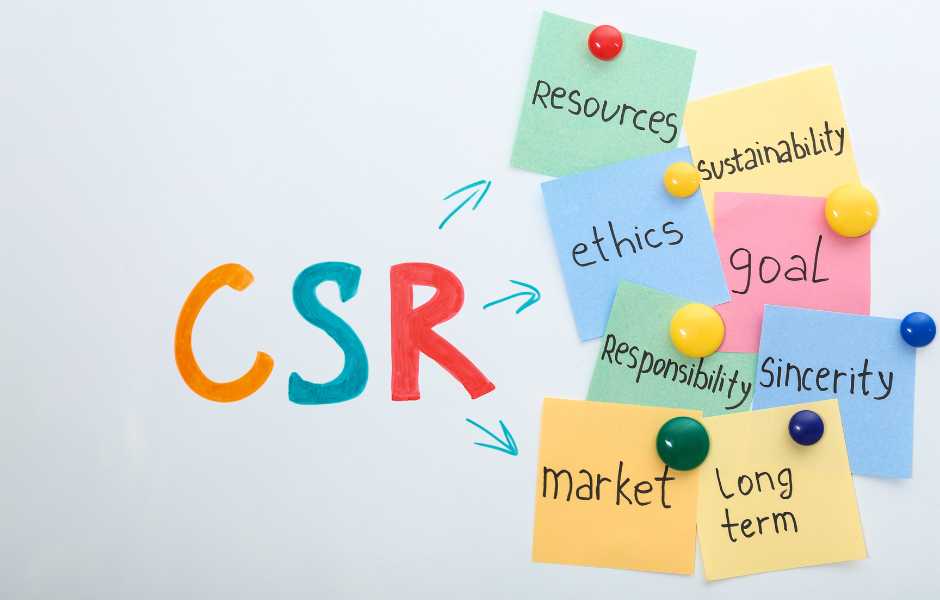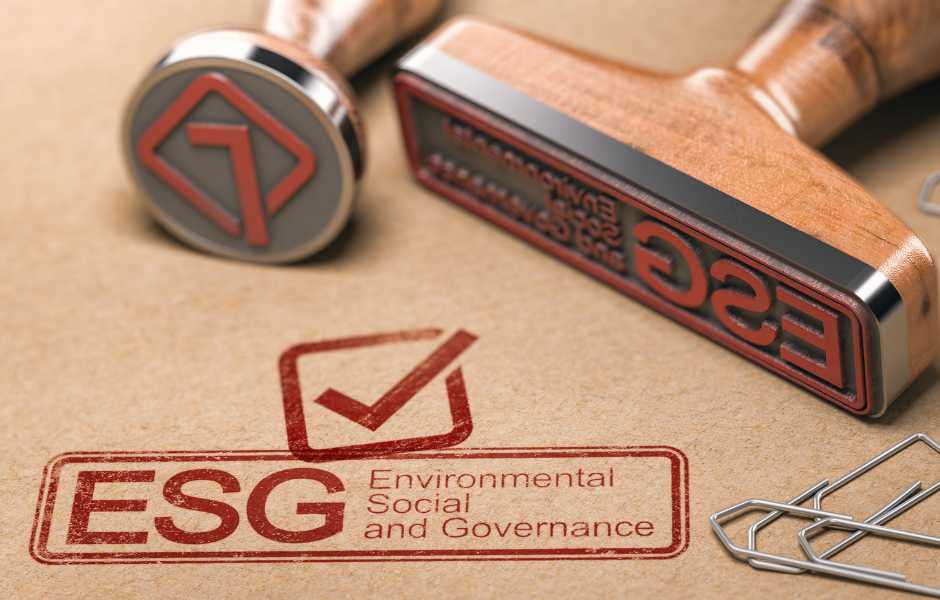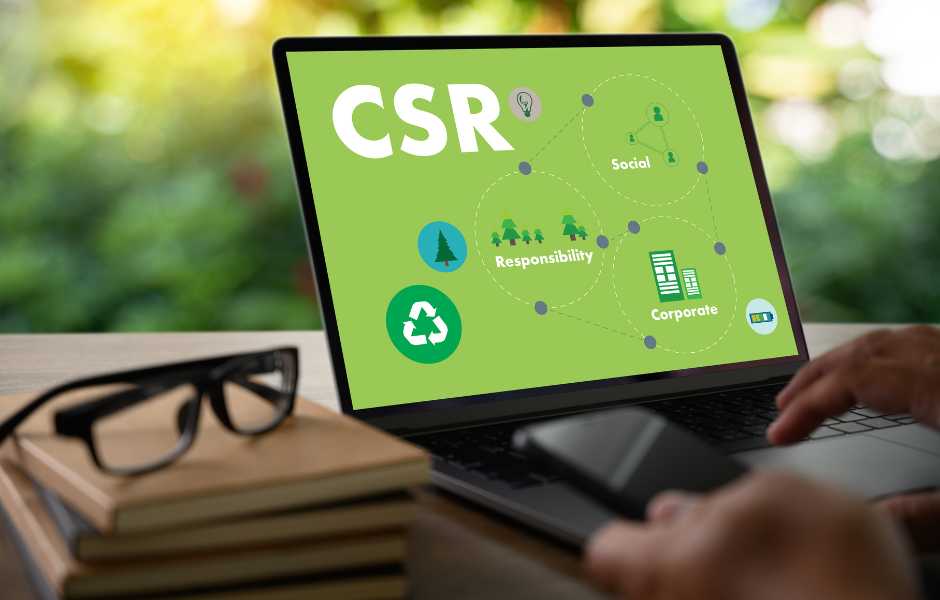Discover the path to a fulfilling career in Corporate Social Responsibility (CSR) as we guide you on becoming a successful CSR Manager.
According to the United Nations’ Agenda 2030 for Sustainable Development, achieving sustainable economic, social, and environmental development is one of the greatest problems humanity faces today.
The question of whether or whether businesses can create opportunities for themselves and value for their stakeholders while facing such threats is less certain.
The concept of corporate social responsibility emphasizes that businesses have a moral and ethical duty to operate in ways that benefit society and the environment in addition to pursuing financial profits.
Contents
- What is Corporate Social Responsibility (CSR)?
- Importance Of Corporate Social Responsibility (CSR)
- 13 Benefits Of Corporate Social Responsibility
- 7 Examples Of Socially Responsible Companies
- How To Become A CSR Manager
- #1. Educational Background
- #2. Gain Relevant Experience
- #3. Develop Key Skills
- #4. Build Your Network
- #5. Stay Informed
- #6. Get CSR Certifications
- The 360º Corporation: Tools for Achieving Corporate Purpose
- Corporate Sustainability: Understanding & Seizing the Strategic Opportunity
- Become a Sustainable Business Change Agent Specialization
- Corporate ESG and Sustainability – 101 Level Masterclass
- The A to Z of ESG – Environmental & Social Governance
- #7. Apply for CSR Positions
- #8. Interview and Networking
- #9. Continuous Learning
- #10. Demonstrate Impact
- #11. Advance Your Career
- #12. Contribute to Thought Leadership
- Career Success Tips
What is Corporate Social Responsibility (CSR)?
CSR, meaning Corporate Social Responsibility, encapsulates a company’s commitment to ethical, social, and environmental responsibilities that extend beyond profit-making objectives.
The social responsibility of business must extend beyond profit generation, encompassing various principles of CSR such as philanthropic responsibility, ethical business conduct, environmental stewardship, community engagement, and a commitment to transparency and accountability.
We can explain CSR as a business practice that goes beyond profit-making to embrace a commitment to ethical, social, and environmental responsibilities. It indicates how companies integrate sustainability into their business practices and communicate their efforts to consumers.
CSR initiatives aim to create a positive impact on society by addressing issues such as poverty, inequality, environmental conservation, and community development. They also seek to align a company’s values and actions with broader societal goals, guiding them in their pursuit of corporate responsibility and sustainability.
Some types of CSR activities include environmental sustainability efforts, employee volunteering programs, ethical sourcing, and diversity and inclusion initiatives. Companies may choose activities that align with their core values and expertise.
Business ethics and corporate social responsibility (CSR) are intertwined principles that guide companies to conduct their operations ethically while actively contributing to society’s well-being and environmental sustainability.
Importance Of Corporate Social Responsibility (CSR)
Corporate social responsibility (CSR) is not merely a moral requirement, but also a strategic need, in an era where consumers and investors increasingly emphasize ethical and sustainable corporate practices. It helps build a more egalitarian and sustainable world over time and has a lasting impact.
The importance of CSR practices in today’s competitive business environment cannot be overestimated. CSR is essential for businesses because CSR initiatives demonstrate that a business cares about doing good for the world beyond the bottom line.
By understanding the importance of social responsibility companies can enhance their reputation, foster customer loyalty, attract top talent, and mitigate risks to build stronger, more sustainable relationships with their stakeholders.
CSR benefits a company by enhancing its brand image, attracting socially conscious consumers and investors, reducing operational risks, and fostering employee engagement and innovation. It can also lead to long-term profitability and resilience.
Socially responsible companies benefit in terms of talent attraction and retention, better stakeholder relationships, and reduced risks connected with unethical practices. Brand loyalty is strengthened, and ethical investors are drawn to companies that practice corporate social responsibility.
A well-defined corporate social responsibility policy serves as a guiding framework that outlines a company’s commitment to ethical practices and its strategies for actively engaging in socially responsible initiatives.
13 Benefits Of Corporate Social Responsibility
CSR benefits society by driving positive social and environmental change. It supports charitable causes, reduces environmental impact, and contributes to community development, ultimately leading to a more sustainable and equitable world.
Some of the key benefits of CSR activities include:
- Enhanced Reputation: CSR initiatives build a positive brand image, bolstering a company’s reputation as socially and environmentally responsible. This can lead to increased trust among customers, investors, and the public.
- Customer Loyalty: Consumers often prefer to support companies that engage in CSR. This loyalty can translate into higher customer retention rates and increased sales.
- Attracting Investors: Ethical and sustainable practices attract socially conscious investors who see long-term potential in companies committed to CSR, potentially leading to greater financial support.
- Reduced Risk: By proactively addressing social and environmental issues, companies can mitigate the risks associated with regulatory non-compliance, negative publicity, and supply chain disruptions.
- Employee Engagement: CSR initiatives can boost employee morale and job satisfaction. Engaged employees tend to be more productive and loyal, reducing turnover costs.
- Innovation and Efficiency: Focusing on sustainability often drives innovation and encourages more efficient resource management, which can lead to cost savings.
- Access to New Markets: CSR can open doors to new markets and partnerships, especially in regions where ethical and sustainable practices are valued.
- Community Development: Companies can positively impact local communities through CSR, which can result in stronger relationships with stakeholders and a supportive environment for business operations.
- Long-Term Sustainability: CSR encourages businesses to consider long-term consequences and adopt sustainable practices, ensuring their longevity in a rapidly changing world.
- Ethical Leadership: Companies practicing CSR can become industry leaders, influencing peers and competitors to adopt responsible business practices.
- Environmental Stewardship: CSR initiatives contribute to environmental conservation, helping to address climate change and preserve natural resources.
- Social Impact: CSR programs can address pressing social issues, such as poverty, education, and healthcare, thereby improving the well-being of society.
- Compliance and Reporting: CSR initiatives help companies comply with evolving regulations and reporting requirements related to sustainability and ethical practices.
CSR initiatives are not typically mandatory, but some countries and industries may have regulations or reporting requirements. However, many companies voluntarily embrace CSR to align with their values and goals.
Overall, CSR initiatives go beyond financial gains, promoting a more ethical, sustainable, and responsible approach to business that benefits both the company and society at large.
7 Examples Of Socially Responsible Companies
Several companies are recognized for their commitment to social responsibility due to their ethical practices and sustainable initiatives. Here are some outstanding examples of corporate social responsibility initiatives:
#1. Patagonia
Known for its environmentally friendly approach, Patagonia invests in sustainable materials and fair labor practices. It donates a percentage of its profits to environmental causes, demonstrating a strong commitment to the planet.
#2. Ben & Jerry’s
This ice cream company is famed for its social activism. Ben & Jerry’s supports various social and environmental campaigns, including climate change awareness, fair trade sourcing, and equitable employee policies.
#3. Microsoft
Microsoft has made significant strides in reducing its carbon footprint. The company aims to be carbon-negative by 2030 and has also initiated programs to promote digital inclusion and address societal challenges.
#4. Salesforce
Salesforce prioritizes corporate social responsibility by giving 1% of its product, equity, and time to support nonprofits. The company also focuses on sustainability efforts, such as achieving net-zero greenhouse gas emissions.
#5. Unilever
Unilever is committed to sustainable sourcing, reducing environmental impact, and promoting diversity and inclusion. Its Sustainable Living Plan emphasizes responsible business practices and societal well-being.
#6. IKEA
IKEA promotes sustainability by using renewable energy, reducing waste, and offering recycling programs. They also invest in local communities through initiatives like refugee employment programs.
#7. TOMS
TOMS’ “One for One” business model donates a pair of shoes for every pair sold and supports clean water and safe childbirth initiatives. It’s an example of a company integrating social impact into its core business strategy.
These companies prioritize social and environmental responsibility not only for ethical reasons but also because they understand that these practices can lead to long-term business success, enhanced brand reputation, and increased customer loyalty.
They serve as examples of how corporate social responsibility can be integrated into business strategies to create positive impacts on society and the bottom line.
How To Become A CSR Manager
The draw of CSR careers lies in the opportunity to make a positive impact on society and the environment while working within diverse industries, fostering ethical business practices, and contributing to a more sustainable and responsible world.
CSR professionals often find fulfillment in aligning their work with their values, addressing pressing global issues and shaping the future of responsible business.
Additionally, these careers offer a chance to collaborate with like-minded individuals, engage in meaningful projects, and influence positive change within organizations and communities, all while pursuing a path that combines purpose with professional growth and development.
A professional who specializes in Corporate Social Responsibility (CSR) is often referred to as a “CSR Manager” or “CSR Specialist.”
However, job titles in this field can vary, and you may also come across titles such as “Sustainability Manager,” “Corporate Responsibility Officer,” or “Social Impact Director,” depending on the organization and the specific focus of their responsibilities.
These professionals are typically responsible for developing, implementing, and managing CSR initiatives within a company, ensuring that the organization adheres to ethical, social, and environmental responsibilities while aligning with its business goals.
If you want to start a career as a CSR Specialist or Corporate Responsibility Officer, this primer on Corporate Social Responsibility (CSR) will answer any questions you have. Becoming a CSR manager or professional typically involves a combination of education, experience, and specific skills.
In this free online career test, you’ll learn about the core strengths and weaknesses in your work personality, what drives your actions, your leadership and management style, and your group performance style, and discover whether a sustainability position is right for you.
Click here to do a free career quiz for students
Here are the steps to pursue a CSR career:
#1. Educational Background
Embark on your CSR career path by earning a bachelor’s degree in a pertinent field like business, environmental science, social sciences, or sustainability. This will equip you with the knowledge and expertise required to excel in the field of Corporate Social Responsibility.
To further enhance your qualifications and prospects, contemplate pursuing a master’s degree, such as a Master of Business Administration (MBA) with a specialization in sustainability, or obtain certifications closely related to CSR.
Understanding the various types of social responsibility is essential for professionals seeking to help corporate social responsibility companies align their business practices with ethical and sustainable principles.
#2. Gain Relevant Experience
Begin your CSR career journey by seeking entry-level roles in CSR, sustainability, corporate communications, public relations, or environmental management. These positions provide a foundation for understanding CSR principles.
Additionally, consider volunteering or interning with organizations involved in CSR initiatives, allowing you to gain hands-on experience, build your skill set, and demonstrate your commitment to ethical and sustainable business practices.
#3. Develop Key Skills
Develop skills in project management, stakeholder engagement, sustainability reporting, and data analysis. Enhance your understanding of environmental, social, and governance (ESG) issues and their impact on business.
Conduct a thorough assessment of your company’s CSR needs and values, design a CSR strategy with corporate social responsibility activities that align its CSR program with its core competencies, and consider the potential positive impact on society and the environment.
#4. Build Your Network
Participating in industry events is essential for forging connections in the CSR and sustainability sphere. Attend conferences, seminars, and workshops to network with like-minded professionals.
Consider joining esteemed organizations like the Global Reporting Initiative (GRI) or the Corporate Responsibility Association (CRA) to access valuable resources, expand your knowledge, and engage in collaborative efforts toward ethical and sustainable business practices.
#5. Stay Informed
Staying informed in the Corporate Social Responsibility (CSR) arena is crucial. Continuously monitor CSR trends, best practices, and emerging sustainability issues.
Regularly read relevant publications and stay engaged with thought leaders’ insights. This knowledge not only enhances your expertise but also enables you to adapt and innovate in the ever-evolving CSR landscape.
#6. Get CSR Certifications
Consider obtaining certifications such as Certified Sustainability Professional (CSP), Certified Corporate Responsibility Practitioner (CCRP), or similar credentials.
Here are some CSR courses to help you get certified as a CSR professional:
The 360º Corporation: Tools for Achieving Corporate Purpose
See how all business models produce stakeholder trade-offs and why environmental and social issues must be addressed. Learn practical ways leaders may analyze trade-offs, create shared value, innovate around them, and experiment.
Explore CSR, ESG, ethics, corporate citizenship, and stakeholder capitalism tools in this course offered by the University of Toronto.
Click here to get CSR ESG certification
Corporate Sustainability: Understanding & Seizing the Strategic Opportunity
In this short course offered by Università Bocconi, business and economics experts from a wide range of backgrounds show how to evaluate crises on a global scale and capitalize on the opportunities they present.
The transition process can be managed to fulfill the value creation potential from corporate sustainability for all engaged stakeholders, and these authors will give new methods of understanding the enterprise’s mission and logic of success in this new environment.
Click here to get corporate sustainability certification
Become a Sustainable Business Change Agent Specialization
Make your company and the world a better place by learning tools and strategies to make sustainability changes in your organization with this specialization from the University of Colorado.
Click here to become a sustainable business change agent
Corporate ESG and Sustainability – 101 Level Masterclass
To establish a top-tier ESG (Environmental, Social, and Governance) program, begin by grasping ESG’s relevance to your business. Build an effective ESG strategy, differentiating it from CSR (Corporate Social Responsibility) and aligning with investors, customers, and employees who share ESG values.
Choose a suitable ESG framework, adhere to reporting best practices, and stay updated on ESG trends. Gain insights from Fortune 100 experts through Zoom interviews, equipping yourself to guide your business towards a more sustainable and socially responsible future.
Click here to learn about CSR & ESG
The A to Z of ESG – Environmental & Social Governance
For businesses, mastering ESG (Environmental, Social, and Governance) management is vital for both financial performance and the broader economy. This entails a comprehensive understanding of ESG aspects within an organization, recognizing their potential benefits, and acknowledging the perils of neglecting them.
Learning about ESG goals, their importance, and how they are established and assessed is critical. Additionally, understanding how ESG impacts small businesses and the support offered by banks and corporations is essential.
Familiarity with regulatory frameworks, sustainability topics, and the controversies surrounding ESG behavior is also crucial for effective navigation.
Click here to learn the A-Z of ESG
#7. Apply for CSR Positions
Explore diverse sectors for CSR job opportunities, spanning corporations, nonprofits, government agencies, and consulting firms.
Customize your resume and cover letter to emphasize pertinent skills and experiences that align with the specific CSR role or sustainability position, demonstrating your suitability and dedication to making a positive societal and environmental impact.
#8. Interview and Networking
Effective preparation for CSR interviews involves highlighting your grasp of CSR principles, proficiency in managing CSR projects, and dedication to ethical standards.
Leverage your professional network to discover job openings, gather insights, and request recommendations, enhancing your chances of securing a fulfilling CSR role that aligns with your values and aspirations.
#9. Continuous Learning
Sustaining excellence in your Corporate Social Responsibility (CSR) career requires continuous learning. Enroll in courses, attend workshops, and participate in CSR and sustainability seminars to stay updated with industry trends.
Seek mentorship from seasoned CSR professionals to gain insights and guidance, fostering your growth as a CSR expert.
#10. Demonstrate Impact
Once in a CSR role, work on CSR policy and CSR projects that demonstrate tangible positive impacts on the organization and society. Document your results in a CSR report and communicate your achievements.
Success in CSR can be measured through various metrics, including environmental impact assessments, social impact evaluations, employee engagement surveys, and financial performance indicators.
#11. Advance Your Career
With increasing experience in the field of Corporate Social Responsibility (CSR), you can aspire to ascend to more influential positions like Senior CSR Manager or Director of Sustainability.
These senior roles involve greater responsibility, strategic decision-making, and the opportunity to shape an organization’s CSR initiatives, making a more profound impact on societal and environmental issues.
#12. Contribute to Thought Leadership
Leverage your expertise in Corporate Social Responsibility (CSR) by actively sharing it with others. Write articles, deliver presentations, and engage in industry panels and discussions.
One of the best ways to create thought-leadership is to start a blog or a YouTube channel (or both). My how-to-learn blogging guide will help you get started with your thought-leadership blog.
If you plan to start a YouTube channel, you can learn how to boost your on-camera charisma to look and sound wonderful and confident in every video you upload with the On-Camera Charisma for YouTube Stars Course.
By doing so, you not only contribute to the collective knowledge but also strengthen your professional reputation, positioning yourself as a thought leader in CSR practices.
Remember that CSR roles and types of corporate social responsibility programs may vary widely depending on the organization and industry. Adapt your approach and skills to match the specific needs and expectations of your chosen career path within CSR.
Career Success Tips
- What Is My Dream Job Quiz: Free Career Quiz For Students
- Free Public Speaking Courses To Start Speaking With Confidence
- Can I Manifest my Dream Job by Writing my Ideal Job?
- How To Love Your Work & Love Your Job
- 21 Best Occupations for the Most Meaningful Careers in 2023
- Learn Soft Skills & Personality Development for the Future of Work
- How To Be Famous And Get Recognition In Your Industry
- How to Write Clearly and Concisely with Business Writing Courses
- How To Learn Powerful Negotiation Skills In The Workplace
- 13 Local Networking Tips For Effective Professional Networking
- How To Grow Your Personal Power & Live Your Life To The Fullest
- Green Marketing Examples: 10 Brands Changing the Sustainability Game
© 2023, Priya Florence Shah. All rights reserved.
Priya Florence Shah is a bestselling author and an award-winning blogger. Check out Devi2Diva, her book on emotional self-care for women. In her spare time, Priya writes science-fiction novels and poetry and chills with her two-legged and four-legged kids.
Discover more from Business & Branding Tips
Subscribe to get the latest posts sent to your email.












